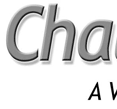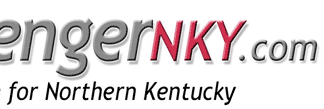| NKY WEATHER NOW |
More NKY Weather |
| Brought to you by: |
|
|
| NKY TRAFFIC NOW |
| Powered by: |
|
|
|
|
||||
 |
 |
|||
| Home | NKY News | Freetime | Travel | Homezone | Cars | Shopping | Working | Classifieds | About NKY | About Us | Contact Us |
|
Archives: Opinion
The seen and the unseen
Getting a glimpse of the future is one of the most coveted commodities sought by humans. It's also one of the most elusive.
Bastiat, a French economist and philosopher, uses a broken shop window to demonstrate the unseen n and often unintended n consequences of today's decisions on the future economy. What is unseen reveals potentially more players in this little drama than the shopkeeper and repairer. Had the glass not been broken, an additional $20 would have ended up at the shoe store, grocer or in the shopkeeper's bank account. Early in his administration, President Bush signed legislation imposing new tariffs on imported steel. Bush's intention was to protect steel-workers' jobs from "unfair" foreign competition by equalizing foreign and domestic prices. This was easily seen n and insisted upon n by the nation's steel producers. But the policy had unintended yet very harmful consequences. It damaged companies that manufactured goods from steel and had a negative effect on employment. For each job that produces raw steel, there are about 20 jobs that use steel as an input. As a result, this policy harmed 20 times the number of workers that it helped. Furthermore, customers paid more for everything from automobiles and washing machines to filing cabinets and other products made with steel. The consequences of well-intended policy are often not considered unless such decisions are viewed through the eyes of foresight. "One of the benefits of studying economics is a deeper understanding of our own situation as acting humans," suggests Gene Callahan in his book "Economics for Real People." "For instance, people often fail to properly account for the cost of their choices." Gaining the eagle-eye of foresight leads to sound decision-making, and is mostly attained through experience. Unfortunately, the rough hand of life's experiences yields misfortune, dismay and can be costly. But is there a way for us to obtain this insight now, possibly avoiding some of the pain that experience inflicts in such an unpleasant manner? That is the purpose of our column. While policymakers love to wax eloquently about the merits of a multitude of taxpayer-funded projects, we seek to arm regular readers with the highly valuable perspective that emerges from an enhanced understanding of sound economics. With this tool of science, the unintended consequences of government's good intentions can become as clear as Bastiat's unbroken window. In coming weeks, we will explore various policies and situations important to the citizens of Northern Kentucky, including education, transportation, taxation, the environment, urban growth and more. We hope our readers will participate in the process by providing ideas, concerns, refutations or rebuttals to us at or by calling us at .
|

|
|
Home | NKY News | Freetime | Travel | Homezone | Cars | Shopping | Working | Classifieds | About NKY | About Us | Contact Us Copyright © 2004, Challenger Communications, LLC, Covington, KY, USA
|

